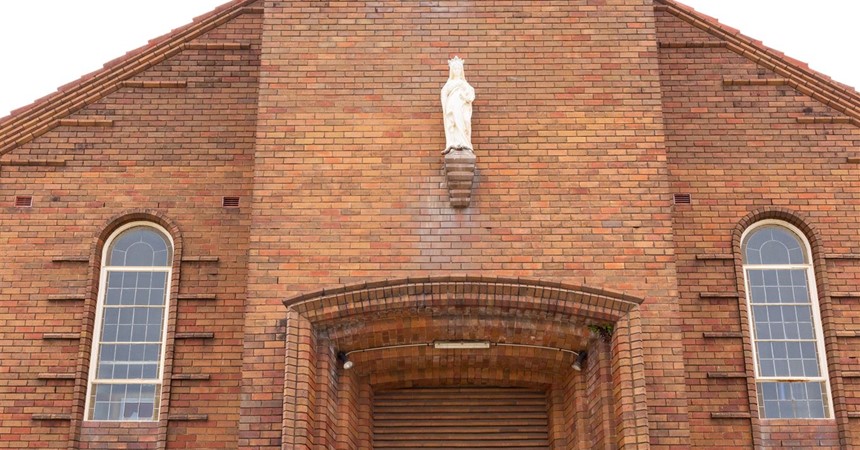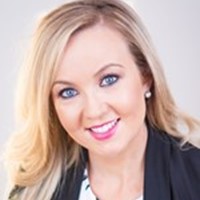James grew up in the western suburbs of Sydney with his mother, Joy, and Jack Turner, not his biological father but the only Dad he ever knew. James and his five younger siblings were enrolled at the local public school and on the weekend they attended Sunday School hosted by the Anglican Church.
When James was around 11-years-old, he noticed he was not like many other boys his age. He preferred to sit inside and discuss history, faith, and politics rather than play rugby. An interest in the Catholic Church followed and he contacted the Catholic Enquiry Centre.
“I readily embraced Catholicism, and like many converts of that era, I threw myself into it,” James said.
At 18 James was baptised a Catholic and two years later, in the late 1960s, he left his family home in Sydney to join the Oblate Seminary in Melbourne.
While his decision to become a priest was prompted by a desire to “do something good for society”, James was also hiding a secret.
“I was aware I was attracted to men,” James said of that confusing period in his life. “I felt totally ashamed and had never verbalised it to anyone, let alone acted upon it.”
“Everything I had ever read on the topic made me think it was just a passing phase. In part, I felt that becoming a priest and following my faith would help me to ‘right the wrongs’ I was experiencing in my mind.”
“Taking up the vocation was never intended as a cover-up for my sexuality or self-imposed penance; I had a genuine desire to do something worthwhile,” he said.
While James was in his second year of study his mother and sister came to visit him at the seminary and their presence made him feel terribly homesick.
“By this stage I had been to see a psychiatrist about the thoughts that had plagued me for over a decade,” James said. “While my family was none the wiser, I had arrived at the understanding my attraction towards men was not a passing phase.”
He decided his best chance of “properly dealing with his sexuality” would be at home in Sydney. A short while later he left the seminary and enrolled at Teacher’s College in Wollongong. There he befriended another college student, Peter, with whom he formed a close platonic relationship. James’ Catholic faith remained as strong as ever.
“Peter was openly and unapologetically gay, with a strong personality to boot,” James recalled.
“He was much loved by his Catholic family who knew of and accepted his homosexuality.”
“This realisation made me begin to question the deep-seated myth I had held onto for so long; that my conservative family would shun me for being gay,” James said.
Despite this new insight, at the end of James’ first year at college his attraction to men still felt wrong and it was then that he sought out electric aversion therapy to make him “straight”.
James recounts that Peter was horrified when he learnt of his friend’s intention to partake in the week-long inpatient therapy at the Prince Henry Hospital in Sydney, which was to be followed by six months of outpatient follow-up with a treating psychiatrist.
“I could only assure him that it was something I felt I had to do. I was desperate to be “normal”,” James said.
Prior to his hospital admission James mustered the courage to confess his sexuality to his mother.
“My mother withdrew, feeling it was all her fault,” he said.
“Jack noticed she was acting differently and asked if I knew what was going on,” James said.
“I had been too nervous to tell him; after all, it took him a while to recover from me converting to Catholicism.”
“But to my surprise Jack was wonderful about it and simply responded with “is that all? I came across that all the time in the army”. It was such a relief.”
Not surprisingly the aversion therapy did not work, and at the end of 1972 James turned to the Charismatic Movement founded by Alex Reichel to “pray the gay away”. That didn’t work either and in 1974, while working as a primary school teacher, James approached his then parish priest, the late Fr Peter Morrissey, for guidance.
“He was my salvation,” James said.
“I went to him, and I said, “what is wrong with me? I am gay and I can’t seem to form a romantic attachment with other people.”
“He responded by saying, “you think too much about yourself, go out and help others”.
“He then asked me, “who made you?” and after fumbling with the answer before arriving at ‘God’ he responded with, “and James, God does not make rubbish, God loves you just the way you are – just the way he made you”.”
With Fr Morrisey’s wisdom ringing in his ears, James began volunteering at St Vincent de Paul. After Mass one evening he met a fellow parishioner who he fell “madly in love with”, and in 1975 the two entered James’ first ever relationship.
Unfortunately the relationship did not last and almost seven years after James left the Oblates, now a qualified teacher, and partway through a psychiatric nursing course, he felt a call from God to return to the seminary.
Having come a long way in reconciling with his sexuality, James applied to the Oblates to be accepted back into training for the priesthood. The refusal was swift: “we don’t accept former students back into the Congregation”.
At various points in the decade that followed, while forging a successful career in psychiatric nursing and later as a general nurse, James formally enquired with three bishops about joining the priesthood but to no avail. The reasons he was given varied, but in part he always felt it came back to his sexuality, whether he disclosed it or not.
James does not resent the Church for this response but is hopeful that Pope Francis’ encouragement of ministry to LGBTIQ community will enable the Church to evolve.
After his retirement from nursing and subsequent move from Sydney to Nelson Bay in 2013, James strengthened his commitment to God, and himself, by resolving to attend daily Mass and to pray the Hours of The Divine Office. Since arriving in our diocese, James has taken up the ministry of providing Holy Communion to parishioners who, for whatever reason, cannot attend Mass and forms part of the choir at Sacred Heart Cathedral.
He describes his belief in God, his commitment to his Catholic Faith and great love of Our Lady and the Saints, as well as the Sacraments, as being the mainstay of his adult life.
“It is these things that have formed the background of my coming to terms with my sexuality,” James said.
Asked about his thoughts on the LGBTIQ Mass, he acknowledges that there will be those who will question it.
“To me the LGBTIQ Mass celebrates my inclusion in the Church, in the People of God, as a loved and welcomed LGBTIQ person. The Mass acknowledges my right and role to walk together with all God’s People in the journey to build the Kingdom of God together,” James said.
It is for this same reason he has admiration for the current pontiff.
“Pope Francis is not changing the rules, but he is trying to understand, which is at least a step in the right direction,” James said.
So, while James does not labour over what could have been if there was more widespread support for the LGBTIQ community by the Church and broader society in his youth, he takes comfort in knowing that, “Catholics – including the lay and many in Clerical roles – have come a long way since my early days in Western Sydney.”




























































































